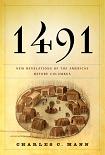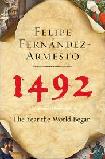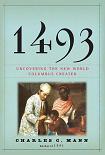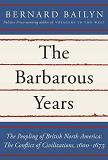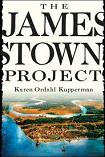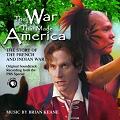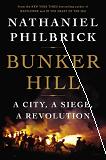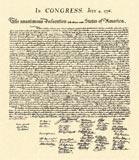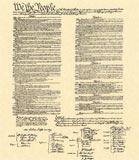
Pilgrim Era
- 1602 May 15: English explorer Bartholomew Gosnold and his ship Concord arrived at Cape Cod, which he named.
- 1603 March 24: James I succeeded Queen Elizabeth I as King of England 'by the union of the Scottish & English crowns'; he reigned until his death at age 59 in 1625.
- 1605 Nov 5: Discovery of the 'Gunpowder Plot' by Catholics to blow up Parliament and kill Protestant King James I; the event is celebrated today as 'Guy Fawkes Day'.
- 1606 Jan 31: Guy Fawkes was executed for his part in the 'Gunpowder Plot' against Parliament and King James I.
- 1606 April 12: England's King James I decreed the design of the original United Kingdom flag, which combined the flags of England and Scotland. (The present-day flag was created by adding features of the Irish flag, effective 1 January 1801.)
- 1607 April 26: Capt. John Smith's expedition to the Virginia Colony arrived at Cape Henry, Virginia.
- 1607 May 14: The location of Jamestowne, the first permanent English settlement in the New World, was chosen and the settlement begun.
[see also Jamestown 1607-2007 site]
- 1607 May 31: Popham colonists set sail from England, landing in September near Kennebec, Maine where they built Fort St. George.
- 1608 July 3: Samuel de Champlain founded the City of Québec in Canada.
- 1608 Sept 10: Capt. John Smith was elected president of the Jamestowne colony council in Virginia.
- 1609 July 28: The English ship Sea Venture ran aground on Bermuda; Admiral Sir George Somers and passengers and crew founded a colony.
- 1609 Aug 21: Galileo Galilei demonstrated his new telescope to local officials at the top of the Campanile in Venice, Italy.
- 1609 Aug 28: English explorer Henry Hudson and his ship Half Moon reached Delaware Bay.
- 1609 Sept 12: English explorer Henry Hudson sailed into the New World river that bears his name.
- 1609-1610: Drought conditions caused a severe winter in Jamestowne Colony, called 'The Starving Time'; recent forensic evidence shows that cannibalism did occur.
- 1611 May 2: Official publication of the King James Bible in England; the King James Bible contains 80 books: 39 in its Old Testament, 14 in its Apocrypha, and 27 in its New Testament.
The official Protestant Apocrypha books are: "The First & Second Book of Esdras", "The Book of Tobias/Tobit", "Judith", "Additions To Esther {Esther 10:4-16:24}", "Wisdom of Solomon", "Wisdom of Sirach, or Ecclesiasticus", "Baruch and The Epistle of Jeremy", "The Song of The Three Holy Children", "The History of Susanna (Susanna and The Elders)", "Additions To Daniel: The Idol Bel and The Dragon", "Prayer of Manasses", and "The First & Second Book of The Maccabees".
- 1611 June 22: Mutineers aboard the ship Discovery set English explorer Henry Hudson, his son, and several others adrift in what is now Hudson Bay; their fate remains unknown.
- 1612 Dec 28: Italian astronomer Galileo Galilei observed the planet Neptune, but mistook it for a star (Neptune was officially discovered as a planet in 1846).
- 1613 April 13: Pocahantas, daughter of the leader of the Powhatan natives, was captured by Capt. Samuel Argall of the English Virginia Colony; she eventually chose to remain with the English.
- 1613 June 29: The original Globe Theatre in London, the site of many original presentations of stageplays by Wm. Shakespeare [1564-1616], burned to the ground (ignited from a cannon-blast during a play); it was rebuilt the next year.
- 1614 April 5: Virginia colonist John Rolfe married Pocahantas, daughter of the leader of the Powhatan natives.
- 1616 April 23: Death of English playwright Wm. Shakespeare at age 52.
- 1619 July 30: America's first {European} representative assembly convened at Jamestowne in the Virginia Colony.
- 1619 Dec 4: A ship with 38 settlers from Bristol, England arrived at Berkeley Hundred in the Virginia Colony; upon landing, they held a 'day of thanksgiving', which preceded the harvest dinner at Plymouth Colony by almost two years.
- 1620 Sept 16: Pilgrims set sail in the vessel Mayflower for the New World. [The Mayflower was previously a whaler, and later a slave ship.]
- 1620 Nov 9: Pilgrims aboard the vessel Mayflower sighted Cape Cod in present-day Massachusetts.
- 1620 Nov 11: Aboard the vessel Mayflower, anchored off the coast of Massachusetts, 41 pilgrims signed a compact calling for a 'body politick'.
- 1620 Nov 20: Birthday of Peregrine White aboard the vessel Mayflower in Massachusetts Bay, the first child born to English parents in New England; he died in 1704 at the age of 83.
- 1620 Dec 21: Pilgrims on the vessel Mayflower stepped ashore for the first time at present-day Plymouth, Massachusetts.
- 1621 April 5: The Mayflower sailed from Plymouth Colony on a month-long return trip to England.
- 1621 June 3: The Dutch West India Company received a charter for a trade monopoly in the New World and for the territory of New Amsterdam, now known as New York.
- 1621 Sept: The remaining colonists at Plymouth celebrated their successful harvest with a three-day 'feast of thankgiving' for 50 colonists and 90 Wampanoag natives.
- 1625 March 27: Charles I succeeded James I as King of England; he reigned until his execution by Cromwell's Parliamentarians at age 48 in 1649.
- 1626 May 4: Dutch explorer Peter Minuit landed on present-day Manhattan Island in New York.
- 1630 Feb 22: Quadequina of the Wampanoag tribe introduced popcorn to the English colonists at Plymouth Colony.
- 1630 Sept 16: The Massachusetts Colony village of Shawmut changed its name to Boston.
- 1631 Feb 5: Roger Williams [1603?-1683] arrived in Boston; he founded the settlement of Providence (in present-day Rhode Island) in 1836.
- 1632 Oct 24: Pioneer Dutch microbiologist Antonie van Leeuwenhoek was born in Delft, Dutch Republic; he discovered the amazing world of microbes under self-made microscopes, including breakthrough 1683 research on the contents of the mouths of two old men; he died in 1723 at age 90.
- 1634 March 25: English colonists founded the city of Baltimore (Maryland), named for their patron, the second Lord Baltimore.
- 1636 Oct 28: Harvard College was founded as New College in Cambridge, Massachusetts.
- 1638 March 22: Religious dissident Anne Hutchinson was expelled from the Massachussets Bay Colony for defying Puritan orthodoxy.
- 1639 Jan 14: Adoption of the first constitution of Connecticut, the Fundamental Orders.
- 1639 March 13: New College [est. 1636] was renamed Harvard Colledge {sic} after founding benefactor clergyman John Harvard [1607-38].
- 1649 Jan 30: After conviction by England's House of Commons for treason, King Charles I was executed at Whitehall Palace in London.
- 1649 Jan 30: Scotland recognized King Charles II as King of Scotland and England, though England's Parliament refused to do so.
- 1649 April 21: The Maryland Assembly passed the Toleration Act, providing for freedom of worship for all Christians.
- 1649 May 19: England's Parliament declared the country to be a republic after the beheading of King Charles I. (The monarchy was restored in 1660.)
- 1650 Feb 11: Death of French philosopher René Descartes [1596-1650] at age 53 under mysterious circumstances at the Swedish court in Stockholm.
- 1651 Sept 3: Cromwell's army defeated forces of King Charles II at the Battle of Worcester; Charles fled to France.
- 1653 Feb 2: New Amsterdam – later renamed New York City – was incorporated.
- 1658 Sept 3: Oliver Cromwell died at age 59; his death left England in political turmoil.
- 1660 May 29: After being invited back to England as monarch by Parliament, King Charles II entered London to popular acclaim; he reigned until his death at age 54 in 1685.
- 1663 July 8: King Charles II of England granted a charter to the Rhode Island Colony.
- 1664 Sept 8: The Dutch surrendered New Amsterdam to the British, who renamed it New York.
- 1680: Rubber-stamp-and-ink postage 'stamp' invented by the London Penny Post mail system.
- 1680 Aug 10-21: Successful revolt of the Native Americans of New Mexico against the Spanish colonists, who retreated to El Paso; now celebrated as Pueblo Independence Day.
- 1681 March 4: England's King Charles II granted a charter to William Penn for what later became Pennsylvania.
- 1683 Oct 6: Thirteen families from Krefeld, Germany arrived in Philadelphia and founded Germantown.
- 1685 Feb 6 [NS Feb 16]: England's King Charles II died at age 54, succeeded by his brother James II.
- 1685 Feb 23: Baroque composer George Frideric Handel was born in Duchy of Magdeburg, Brandenburg-Prussia (modern Saxony-Anhalt, Germany); he became a naturalised British subject in 1727, and died in London in 1759.
- 1688 Dec 11: Catholic King James II was overthrown by his Protestant daughter Mary and her husband Hanoverian William of Orange-Nassau; James fled to France. The events are known as The Glorious Revolution [1688-89].
- 1689 April 11: William III of Orange [1650-1702] and wife Mary II [1662-1694] were crowned as joint sovereigns of Britain, Scotland & Ireland.
- 1690 Feb 3: First paper money was issued in America, by the Colony of Massachusetts, to pay soldiers fighting in a war against Quebec.
- 1690 July 12: Forces led by William of Orange defeated the army of England's James II at the Battle of The Boyne in Ireland.
- 1692 Feb 29: The first people were accused of witchcraft in Salem, Massachusetts; when the trials were over, 141 people had been 'judged' and 19 executed.
- 1692 June 10: Bridget Bishop was hanged, the first execution in the witch trials frenzy in Salem, Massachusetts.
- 1694 Dec 28: England's Queen Mary II died at age 32; joint monarch William III continued to rule England until his death at age 51 in 1702.
- 1699: Founding of the City of Williamsburg as the capital of Virginia Colony. (The historic district is preserved as Colonial Williamsburg, created in 1927.)
|




![]()
 back to Spirit of America Bookstore homepage
back to Spirit of America Bookstore homepage

